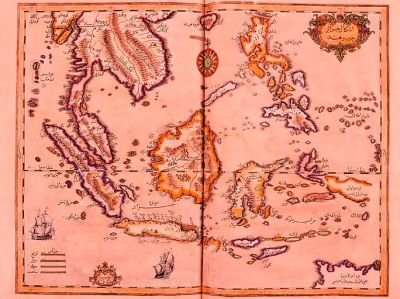
History The entry of Islam into Indonesia Associated with the history of the entry of Islam into Indonesia, there are several theories and opinions that state when actually the influence of Islamic culture and religion began to enter the archipelago. These opinions are based not only on the evidence that has been found, but also reinforced by historical records made by other peoples in the past.
- The entry of Islam since the 7th century AD Some historians call if the history of the entry of Islam to Indonesia has started since the 7th century AD. This opinion is based on news obtained from Arab traders. From the news, it is known that the Arab traders apparently had established trade relations with Indonesia during the development of Sriwijaya Kingdom in the 7th century.
In that opinion it is mentioned that the territory of Indonesia which first received the influence of Islam is coastal area of North Sumatera or Pasai Ocean region. Samudra Pasai territory is the gateway to other parts of Indonesia. From Samudra Pasai, through the path of Islamic religious trade spread to Malacca and then to the island of Java. In the 7th century AD it is also believed that Islam has entered the area of the North Coast of Java Island. The entry of Islam to the island of Java in the 7th century AD is based on news from China during the Tang Dynasty. The news states that there were Ta'shih (Arab and Persian) people who had not intended to attack Kaling under the reign of Queen Sima in 674 AD.
2.The entry of Islam since the 11th century AD Some other historians argue that the history of the entry of Islam to Indonesia began in the 11th century AD. This opinion is based on evidence of a tombstone Fatimah bint Maimun located near Gresik East Java. This tombstone dates to 1082 AD.
3.comes his Islam since the 13th century AD In addition to the above two opinions, some other experts actually believe if the history of the entry of Islam to Indonesia began in the 13th century AD. This opinion is based on some stronger evidence, some of which are attributed to the fall of the Abassiah Dynasty in Baghdad (1258), news from Marocopolo (1292), grave of the grave of Sultan Malik as Saleh in Samudra Pasai (1297), and news from Ibn Battuta (1345). This opinion is also reinforced by the spread of Sufism in Indonesia. History of the Spread of Islam in Indonesia In the advent of Islam, the spread of Islam by Arab traders was aided by Persian and Indian traders. 7th century AD is the beginning of the coming of Islam. At this time, only a small percentage of the population is willing to embrace it because it is still in the power of Hindu-Buddhist kings. History of the entry of Islam into Indonesia and the process of spreading took place in a long time that is from the 7th century until the 13th century AD. During that time, traders from Arabia, Gujarat, and Persia intensified to spread Islam in the area they visited, especially in the central trading area. In addition, Indonesian traders who have converted to Islam and Indonesian Mubalighs have also contributed to the spread of Islam in various parts of Indonesia. As a result, the influence of Islam in Indonesia is increasingly widespread among the people, especially in coastal areas. At the end of the 12th century AD, the political and economic power of the Sriwijaya Kingdom began to decline. Along with the decline of Sriwijaya's influence, Islamic traders and their preachers have become more active in political roles. For example, saaat supports coastal areas that want to break away from the power of Srivijaya. Towards the end of the 13th century around the year 1285 stands a patterned Islamic empire called Samudra Pasai. Malacca, which is an important trade center and also the center of the spread of Islam, developed into a new kingdom under the name of the Malacca Sultanate.
At the beginning of the 15th century, the kingdom of Majapahit declined, even in 1478 collapsed. Many areas are trying to escape from the kingdom of Majapahit. In 1500, Demak stood as the first Islamic empire in Java. The development of the kingdom of Demak as an Islamic kingdom is then followed by the establishment of the Sultanate of Banten and the Sultanate of Cirebon. Outside Java also developed many Islamic-themed kingdoms such as Ternate Sultanate, Gowa Sultanate, and Banjar sultanate. Through Islamic-style kingdom that is, Islam is growing rapidly and spread in various parts of Indonesia. Islam is not only embraced by coastal populations, but has spread to rural areas.
Jgn lupa vote saya yaInformasi yang bagus @muhammadfahmi
sudah di follow kok